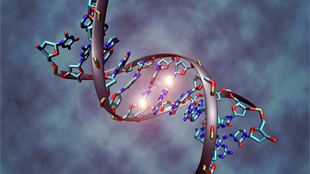 WIKIMEDIA, CHRISTOPH BOCKIn September 2012, a team of Australian scientists claimed to have developed a genetic test that predicts a person’s risk of developing autism spectrum disorder (ASD) with 72 percent accuracy. Writing in Molecular Psychiatry, the team led by Stan Skafidis and Carlos Pantelis from the University of Melbourne said that their panel of 237 genetic markers could “correctly classify ASD from non-ASD individuals” and “may provide a tool for screening at birth or during infancy to provide an index of at-risk status.”
WIKIMEDIA, CHRISTOPH BOCKIn September 2012, a team of Australian scientists claimed to have developed a genetic test that predicts a person’s risk of developing autism spectrum disorder (ASD) with 72 percent accuracy. Writing in Molecular Psychiatry, the team led by Stan Skafidis and Carlos Pantelis from the University of Melbourne said that their panel of 237 genetic markers could “correctly classify ASD from non-ASD individuals” and “may provide a tool for screening at birth or during infancy to provide an index of at-risk status.”
But a new study, led by Benjamin Neale from Massachusetts General Hospital, suggests that those claims were overblown. Neale’s team replicated the Australian group’s research in a larger sample, and found that the proposed panel of markers did not accurately predict ASDs.
“The claims in the original manuscript were quite bold. If they were true, it really would have been quite a major advance for the field, with serious ramifications for patients and other risk populations,” said Neale. “I think it’s important to ensure that this kind of work is of the highest quality.”
“This is a convincing refutation that calls into question the original results on specific technical grounds, rather than simply a non-replication that leaves a puzzling discrepancy between the two studies,” said ...



















